Key Findings from Our Research on Gen Alpha and 13-year-olds
The oldest members of Generation Alpha—whose years span from 2010 to 2024—became teenagers in 2024. New research captures what the eldest of Gen Alpha are thinking, feeling and experiencing.
In 2024, Springtide Research Institute conducted a study of 13-year-olds in the US—the oldest members of Generation Alpha. In this report, we explore 13-year-olds’ thoughts on religion, politics, and technology; their experiences of the COVID-19 pandemic; their mental health and well-being, and more. Findings show that 13-year-olds fully understand their identity as a teenager, but other aspects of life may not be so clear.
Five Key Findings
-
Part of the most racially diverse generation, most Gen Alpha 13-year-olds tend to see increased racial and ethnic diversity in the US as a good thing.
Far fewer believe that an increase in racial and ethnic diversity is a bad thing. Many 13-year-olds attend racially diverse schools and befriend racially diverse peers.
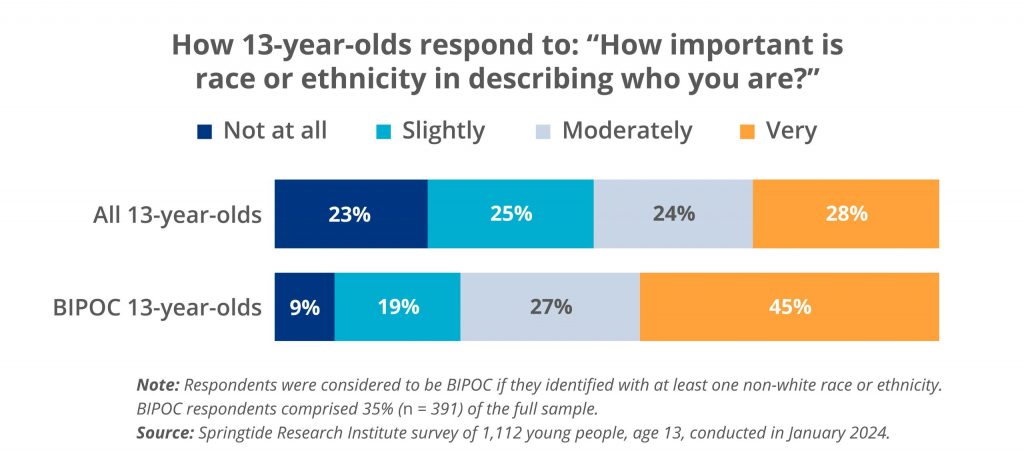
-
Friendships—often racially diverse—feel central.
A large majority of young teens agree that their friendships feel supportive and rewarding. Most 13-year-olds say that their closest friends include someone whose racial identity differs from theirs.
Nearly all 13-year-olds are on social media, primarily because “my friends use it.” Most feel as though COVID-19 did not have a negative impact on their relationships with friends.
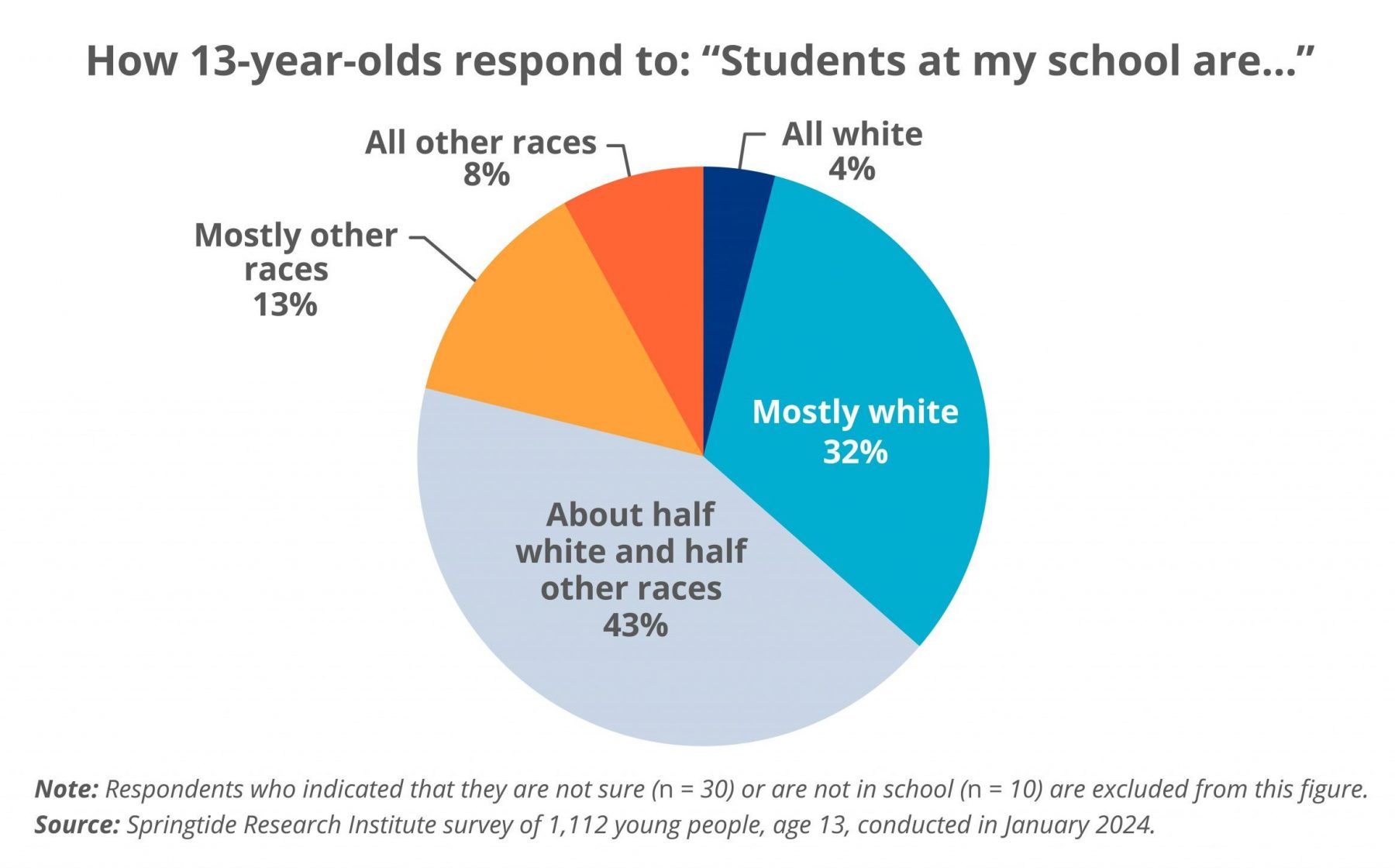
-
COVID-19’s impact wasn’t all negative.
Three-quarters of 13-year-olds say that COVID-19 had a positive, mixed, or neutral overall impact on their lives, compared to one-quarter who say it negatively impacted their lives. The pandemic’s impact on family relationships is evaluated especially positively.
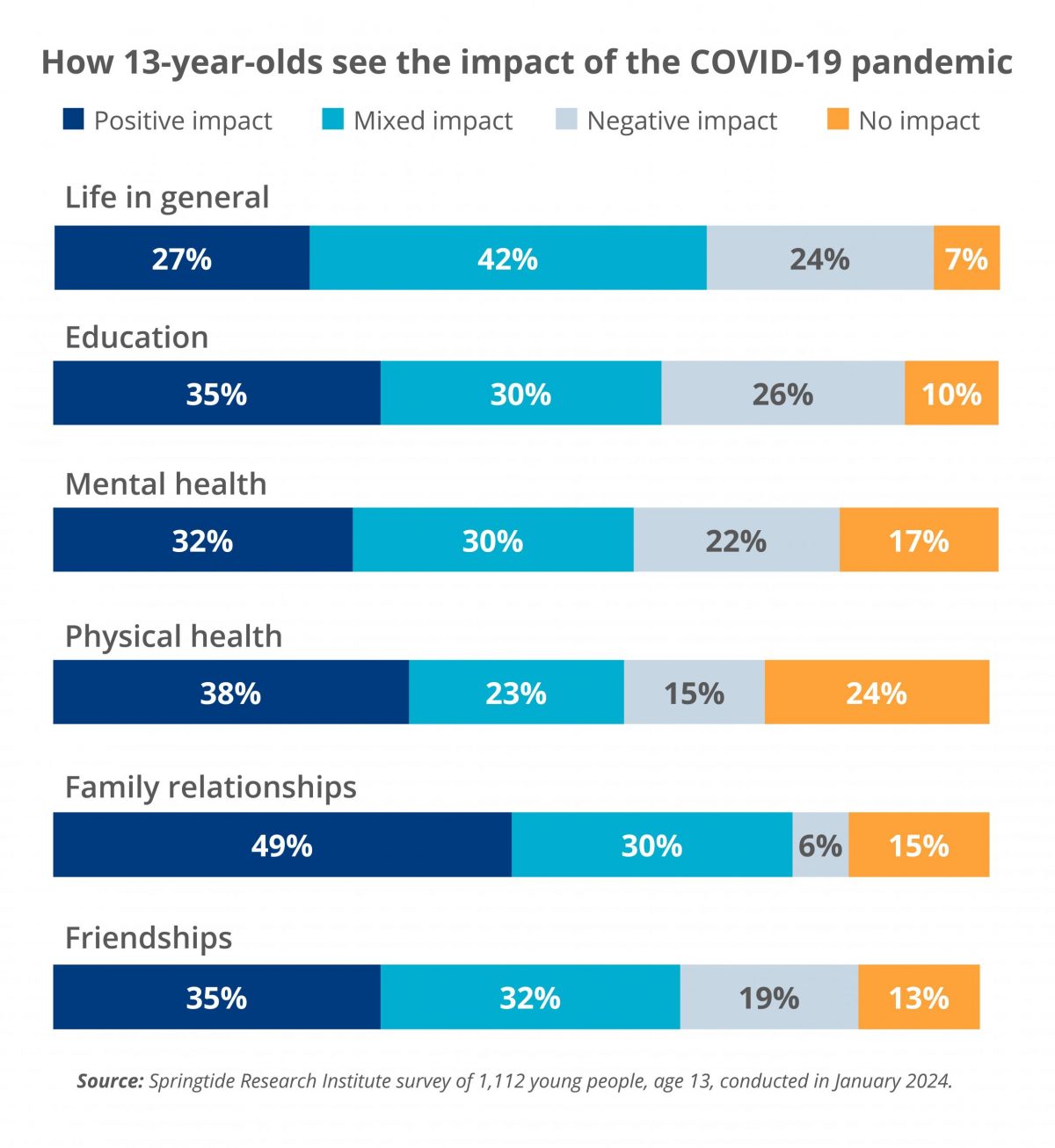
-
Smartphones feel “addictive,” and parents monitor use.
Nearly all 13-year-olds say that they have a smartphone, and nearly half agree that they are “addicted” to it. Most spend at least a few hours on their phone daily. Teens commonly have access to laptops, tablets, and gaming consoles, too. More than half of 13-year-olds say that they have to ask their parents’ permission to use apps or sites. They also report that their parents limit screen time and monitor online activity.
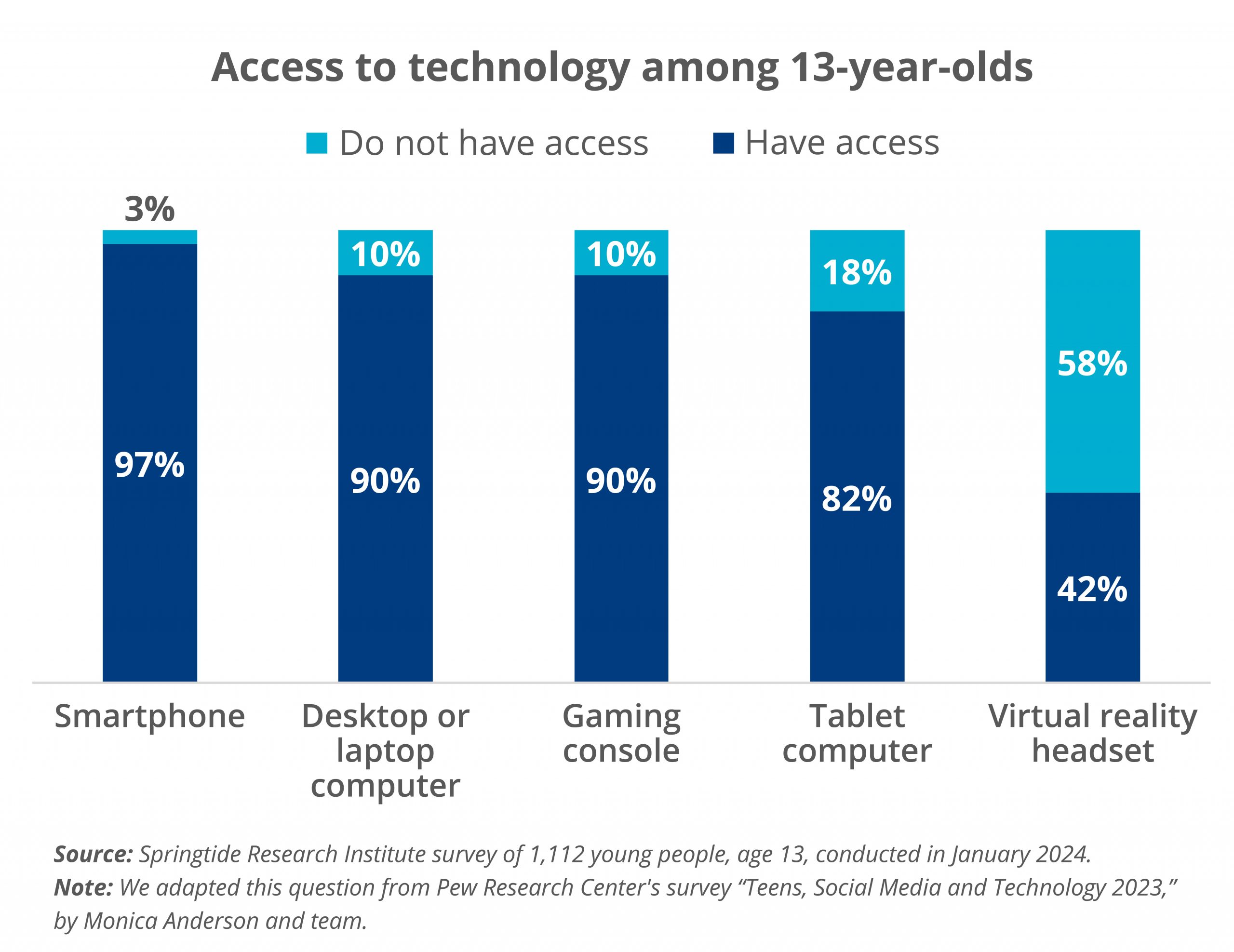
-
Climate change haunts futures.
Six in ten 13-year-olds worry about the effects of climate change at least sometimes. Nearly half expect that their lives will turn out differently than their parents’ lives because of it. A large majority see efforts to reduce the negative effects of climate change as good for society.
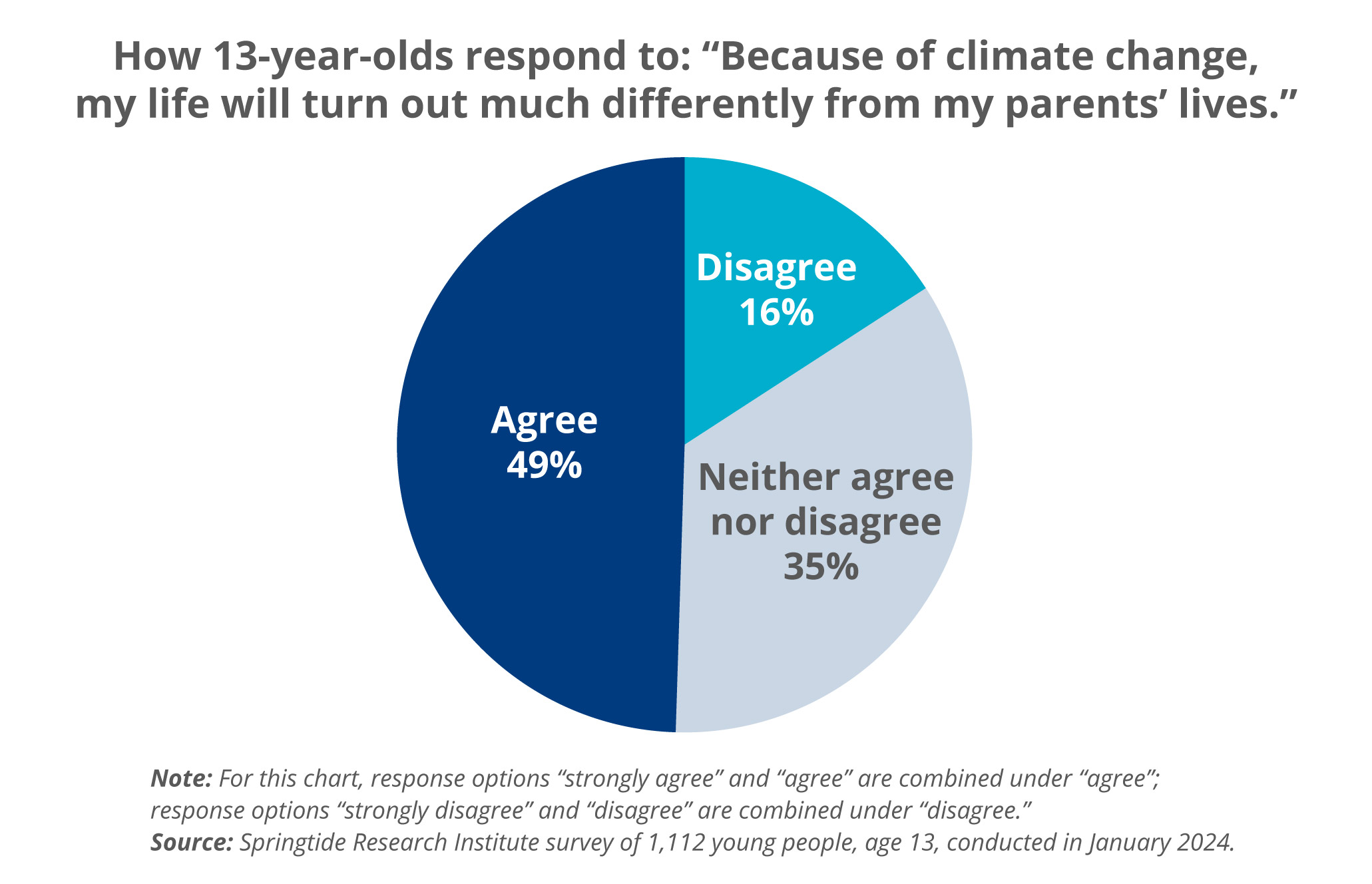
You can download the full free report, Thirteen: A First Look at Gen Alpha here.






